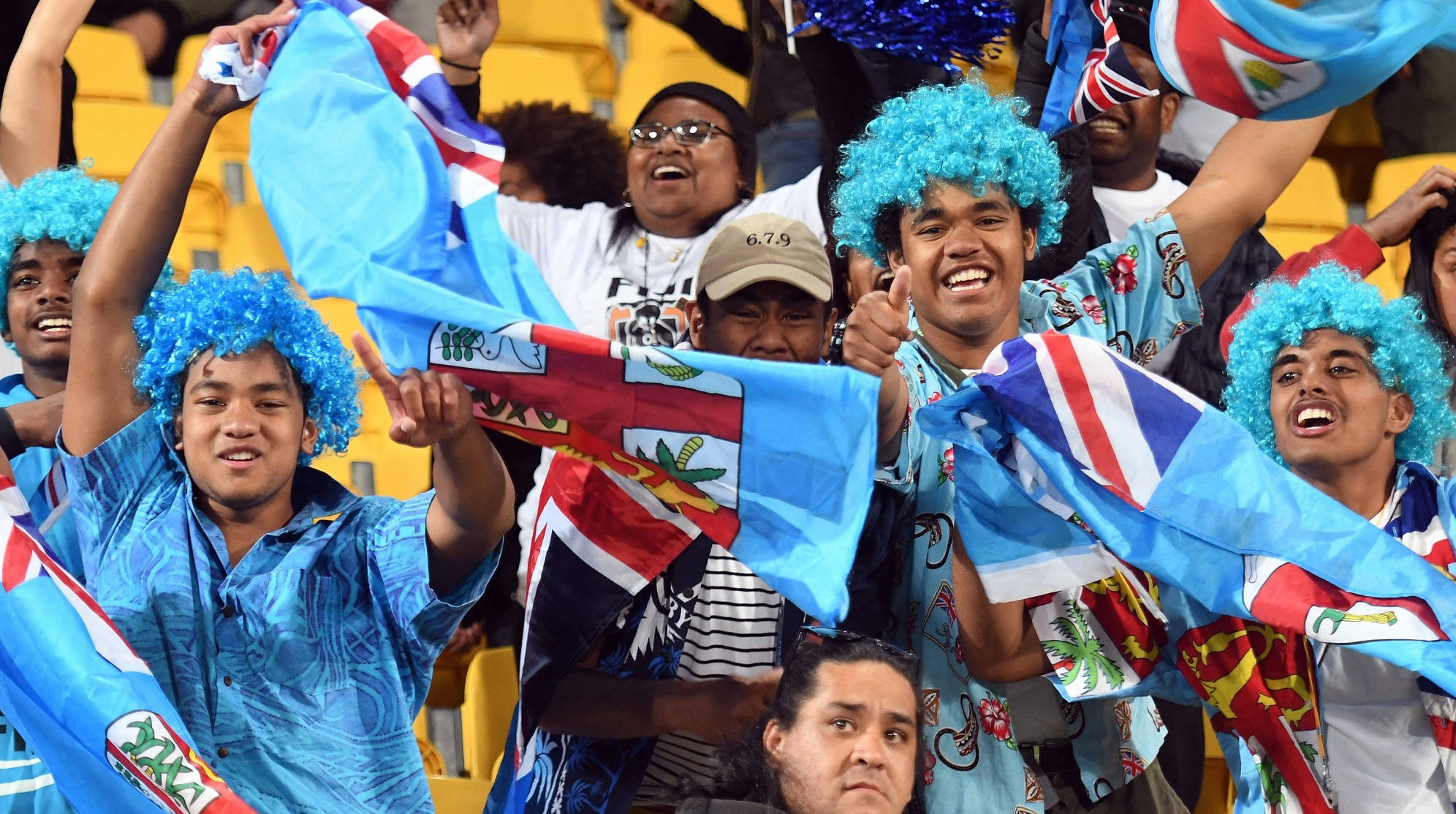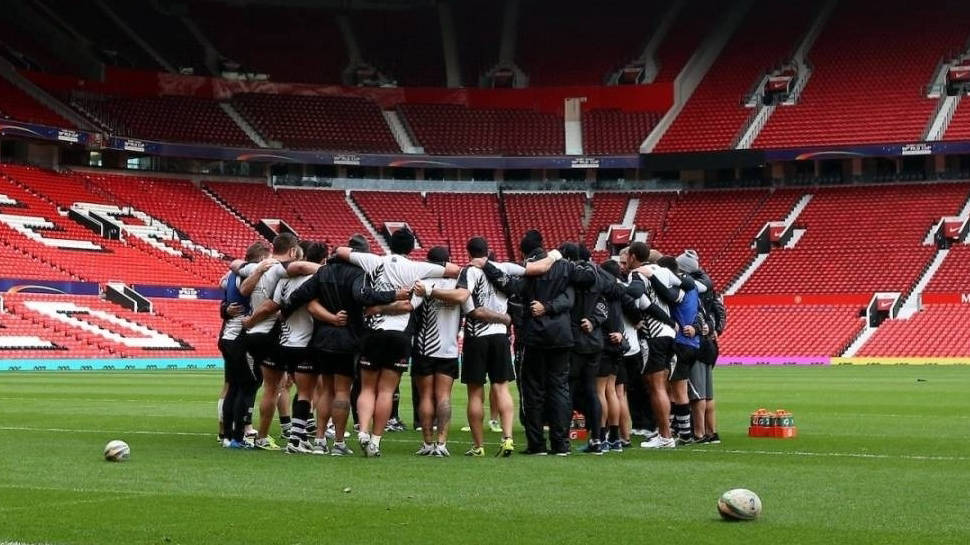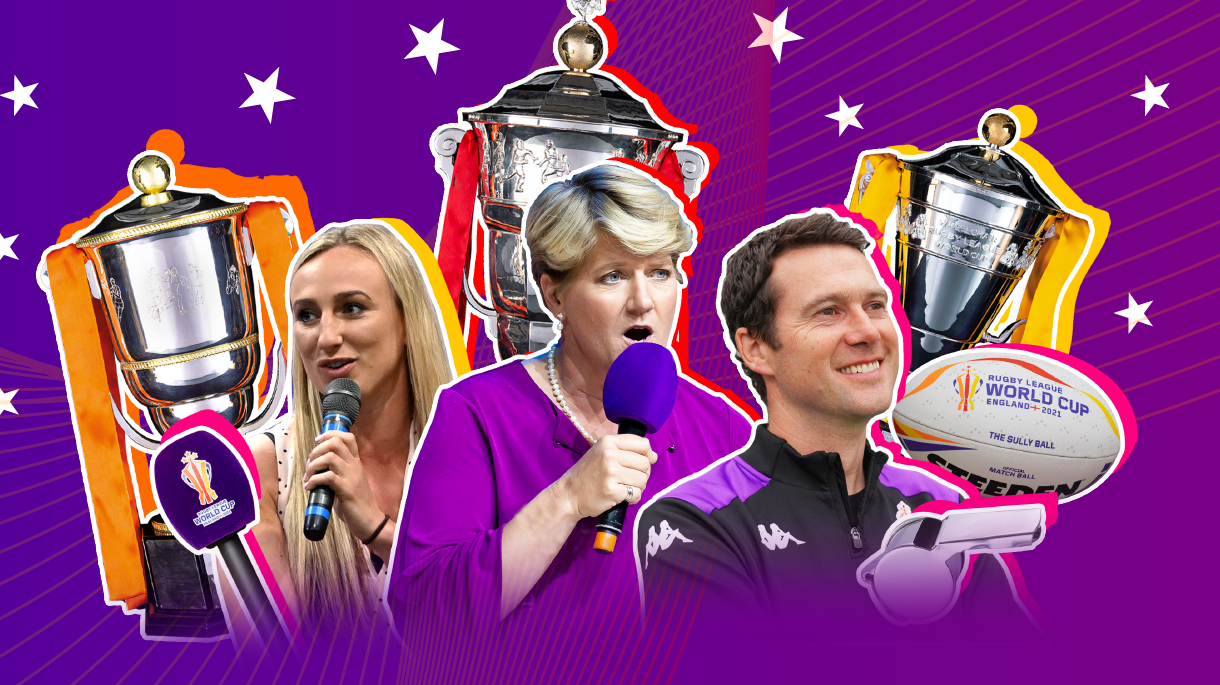
10 Oct 2022
Story of the 2017 World Cup
Australia came out on top in the men's and women's tournaments while France claimed wheelchair World Cup honours
It has been five years since the last iteration of the Rugby League World Cup, where Australia ran out men’s and women’s winners, and France emerged victorious in the wheelchair competition.
In 2017, the men’s and women’s tournaments were spread across Australia, New Zealand, and Papua New Guinea, while France played host to the wheelchair competition.
Half a decade on, all three will take place concurrently in England, creating a festival of rugby across 21 venues.
But ahead of October 15 and the start of the men’s competition, it’s time to reflect on what happened last time the world gathered for rugby league’s showpiece events.
2017 Wheelchair Rugby League World Cup
There was late drama in the final of the last edition of the Wheelchair Rugby League World Cup, with a try at the death from France’s Nicolas Claussels earning victory for Les Bleus.
England looked to have one hand on the trophy with just a few minutes left on the clock but Claussels struck with his score converted by Cyril Torres as the hosts took took the crown in Perpignan 38-34.
The third-place final saw Australia edge out Italy 58-45 to take bronze, as the Wheelaroos bounced back from defeat to England in the semi-final.
2017 Women’s Rugby League World Cup
The fifth Women’s Rugby League World Cup saw six sides battle it out, but it was hosts Australia who once more came out on top, taking their second title and retaining their crown from 2013.
The defence of their 2013 victory got off to a dream start, as wins against the Cook Islands and England saw the Jillaroos top Pool A with a points difference of 180 and only conceding a solitary try.

Chris Chapman’s England Lionesses edged their way out of the group despite a 22-16 defeat to the Cook Islands, with a 36-8 win over Papua New Guinea enough to sneak through on points difference.
In Pool B, New Zealand finished top of the pile ahead of Canada and Papua New Guinea with a similarly dominant set of performances.
Just the one try was conceded by the Kiwi Ferns as they beat Canada 50-4 before getting past Papua New Guinea 38-0 and Cook Islands 76-0.
Canada’s defeat to New Zealand didn’t hamper the Ravens, as they beat Papua New Guinea 22-8 to make it into the semi-finals.
Knockout stage
Australia and New Zealand’s performances in the pool stage made them firm favourites heading into the semi-finals, and the pair did not disappoint.
New Zealand ran out 54-4 winners against England, with Honey Hireme dotting down a hat-trick to take the Kiwi Ferns into the final.

And Australia followed in their neighbours' footsteps at the Southern Cross Group Stadium in Sydney, winning 58-6 against Canada, with seven different players crossing the whitewash.
It set up a mouth-watering encounter in Brisbane in a repeat of the 2013 final. New Zealand were looking for revenge for defeat four years ago, while Australia were striving to seal back-to-back titles.
A hard-fought final saw the lead ebb and flow, with Isabelle Kelly opening the scoring for the Jillaroos after eight minutes before Hireme hit back with two tries to give her side the lead after just 20 minutes.
Caitlin Moran went over just before the break for the Jillaroos, with Kelly and Elianna Walton replying after the interval to put Australia on course for a second title.
Raecene McGregor scored late on for the Kiwi Ferns to give her side a chance in the closing stages, but Australia held on for a thrilling victory.

2017 Men’s Rugby League World Cup
After Australia claimed victory in the women’s final, all eyes were on their male counterparts to seal a famous double in Brisbane.
The 15th men’s Rugby League World Cup saw plenty of thrills and spills but it was the Kangaroos who continued their dominance, taking their 11th title on home soil.
The group stage saw 14 teams do battle for just eight quarter-final spots. Australia sailed through in Group A with three wins from three, ensuring progression alongside England and Lebanon.
The Cedars’ progression to the knockout stage marked their best-ever performance at a World Cup, with their 29-18 win against France enough to put them through.

Group B saw Tonga mirror Australia’s 100 per cent record to progress alongside New Zealand and Samoa, with Scotland missing out on points difference.
Papua New Guinea and Fiji completed the quarter-final line-up, with both nations notching three wins from three.
Knockout stages
The knockout stages brought drama in droves, with two particularly thrilling games in New Zealand.
While Australia cruised through against Samoa 46-0 in Darwin, and England looked comfortable with a 36-6 win against Papua New Guinea in Melbourne, things weren’t quite so simple in the other two matches.
In Wellington, Fiji faced off against 2008 champions New Zealand. While the Bati had won all three of their group stage games, they knew that the match against the Kiwis would prove a sterner test.
But the Pacific Islanders eked out a 4-2 victory in a low-scoring affair, reducing New Zealand to only a Shaun Johnson penalty, with Taane Milne knocking over the decisive points for Fiji.

On the South Island, Tonga and Lebanon played out a thriller. Neither side had been to the semi-finals before, and it was Tonga that ran out narrow winners in a pulsating encounter in Christchurch.
David Fusitu’a scored twice in the first half as Tonga led 22-16 before the Cedars looked to fight back after the break. Abbas Miski’s second try of the game gave Lebanon hope but the boot of Mafoa’aeata Hingano was ultimately just enough to put Tonga through.
The semi-finals saw Tonga involved in another tight game, but this time they found themselves on the wrong side, losing 20-18 to England in a thrilling contest.
The Three Lions had been in control in Auckland thanks to tries from Jermaine McGillvary, Gareth Widdop and John Bateman before three late tries for Tonga nearly set up a grandstand finish. A second-half penalty from Widdop instead proved decisive.
In the other semi-final, the Australian juggernaut continued unabated with a 54-6 win over Fiji as Valentine Homes scored a stunning six tries in Brisbane. It looked like nothing could stop the Kangaroos, with one final hurdle against England remaining.
Australia versus England is never simple and while the Kangaroos had shown their free-scoring best throughout the tournament, the final in Brisbane was a very different affair.
Just the one try was needed for Australia to take their 11th title, with Boyd Cordner’s 15th-minute effort enough thanks to the hosts’ rear-guard action that kept England at bay in a 6-0 win.

England fans were dreaming of extra time when Kallum Watkins burst down the right late on and looked set to score before Josh Dugan’s crucial tap tackle dashed those hopes in dramatic fashion.
Instead, a relieved Australian crowd celebrated a narrow triumph which had seen both sides go hammer and tong for the full 80.


























































